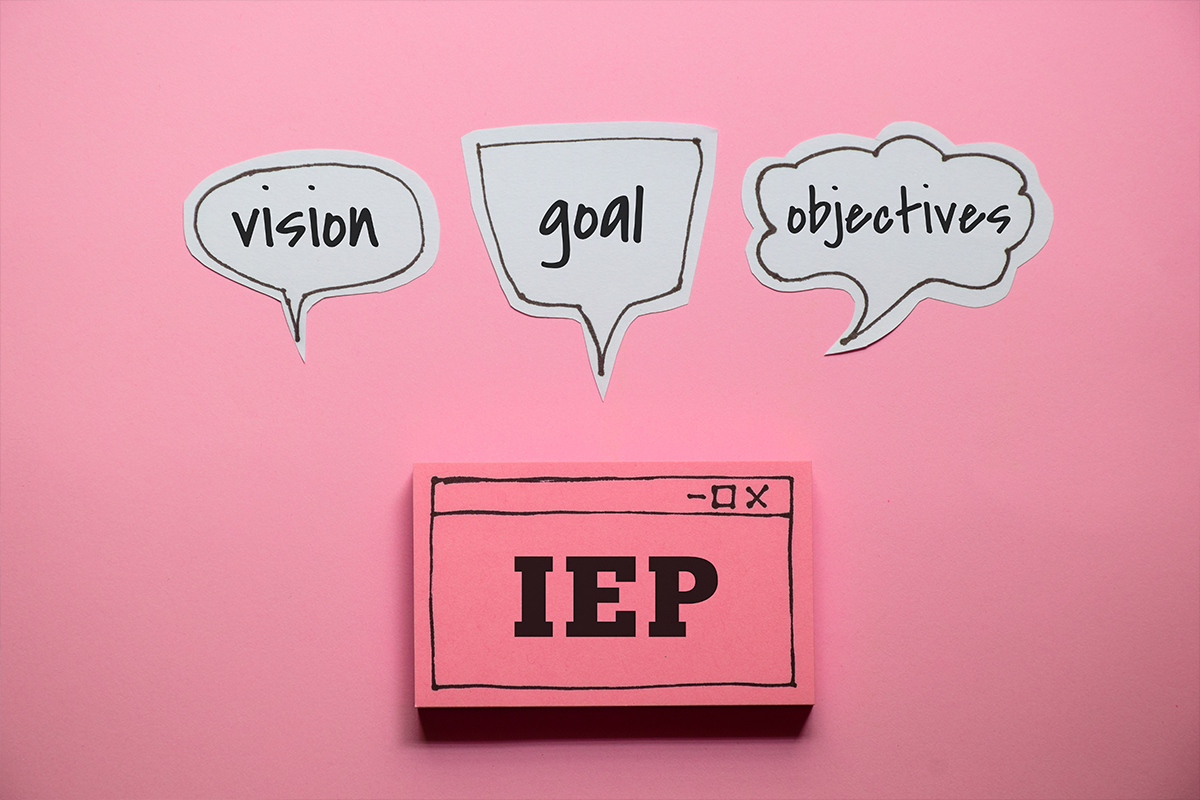We discussed the differences between an Individualized Education Plan (IEP) and a 504 Plan. As we noted, if your child has one or more disabilities that impede their academic and emotional progress, they may require an IEP, which provides special education services. How do you know if your child is eligible for an IEP, and if so what are the steps? Let’s dive in.
1. Referral
A teacher or an education professional at school may feel that your child requires special education and may refer your child to the school district for an expert evaluation. However, it will require your parental consent.
If you believe that your child requires special education or has other special needs, you can request this evaluation on your own initiative.
2. Evaluation
Next is the evaluation. An expert team led by your school district or a private provider will assess your child for special learning needs. Other members of the team may include a language pathologist, vision specialist, physical therapist, special education professional, or other specialists.
3. Independent Education Evaluation
You can opt for an Independent Education Evaluation if necessary. In some cases, the school district will pay for it upon request. The school’s IEP coordinator should inform you about this and other rights that you can exercise.
4. Eligibility
The team will carry out the evaluation, and based on these findings, they will decide whether or not your child qualifies for special education services.
Children with disabilities like impaired hearing, ADHD, articulation problems, and other disabilities are eligible for special education services.
If the team determines that your child does not qualify for special education services and you don’t agree, you can challenge this decision.
5. IEP Meeting Arrangement
The IEP meeting must be held within 30 days of the evaluation if it is found that your child qualifies for special education services.
The special education coordinator will inform you about all meeting attendees and request that you note professionals that you will bring, like an advocate who will speak in your child’s favor.
6. IEP Meeting
Everything to this point has led to the big meeting. The IEP recommendations will be outlined in the official meeting, covering all the components:
- Current Skill Level
- Annual Goals
- Progress Tracking
- Special Education Services
- Duration of Services
- Participation in Mainstream Classrooms
- Testing Adaptations
- Transitional Goals and Services
In case you don’t agree with the IEP, you can request a hearing and mediation.
7. IEP Implementation
You’ve gone through the hard work advocating for your child, and now it’s crucial to ensure that the IEP is being followed. Your child’s teacher and other education professionals will receive IEP copies, and the school coordinator will discuss with you how the IEP will be implemented. Still, it’s a best practice to check in with teachers to confirm that the documented accommodations and other aspects of the IEP are being applied.
8. IEP Reports
Besides school reports, you will also receive IEP reports at a similar frequency. You may also get informal updates on how your child is performing relative to the IEP.
9. IEP Reviews
There will be IEP reviews at least once every year to ascertain whether or not your child’s progress is satisfactory. If you disagree with the review, you can request further evaluations or a mediation.
10. Reevaluation
The U.S. Department of Education mandates reevaluations every three years to assess whether your child is still eligible for special education services. Reevaluations may be conducted more frequently if you or your child’s school request them.
Lastly, you are your child’s best advocate, so maintaining regular communication with your school is crucial for their success, growth and development.
Chicago Mind Solutions Is On It
Chicago Mind Solutions treats many of the conditions within the IEP disability categories. In addition, our seasoned and credentialed Learning Specialists work with children and families to improve academic performance and provide guidance on IEP’s. For more information, please contact us at (224) 723-5050 or email info@chicagomindsolutions.com.






